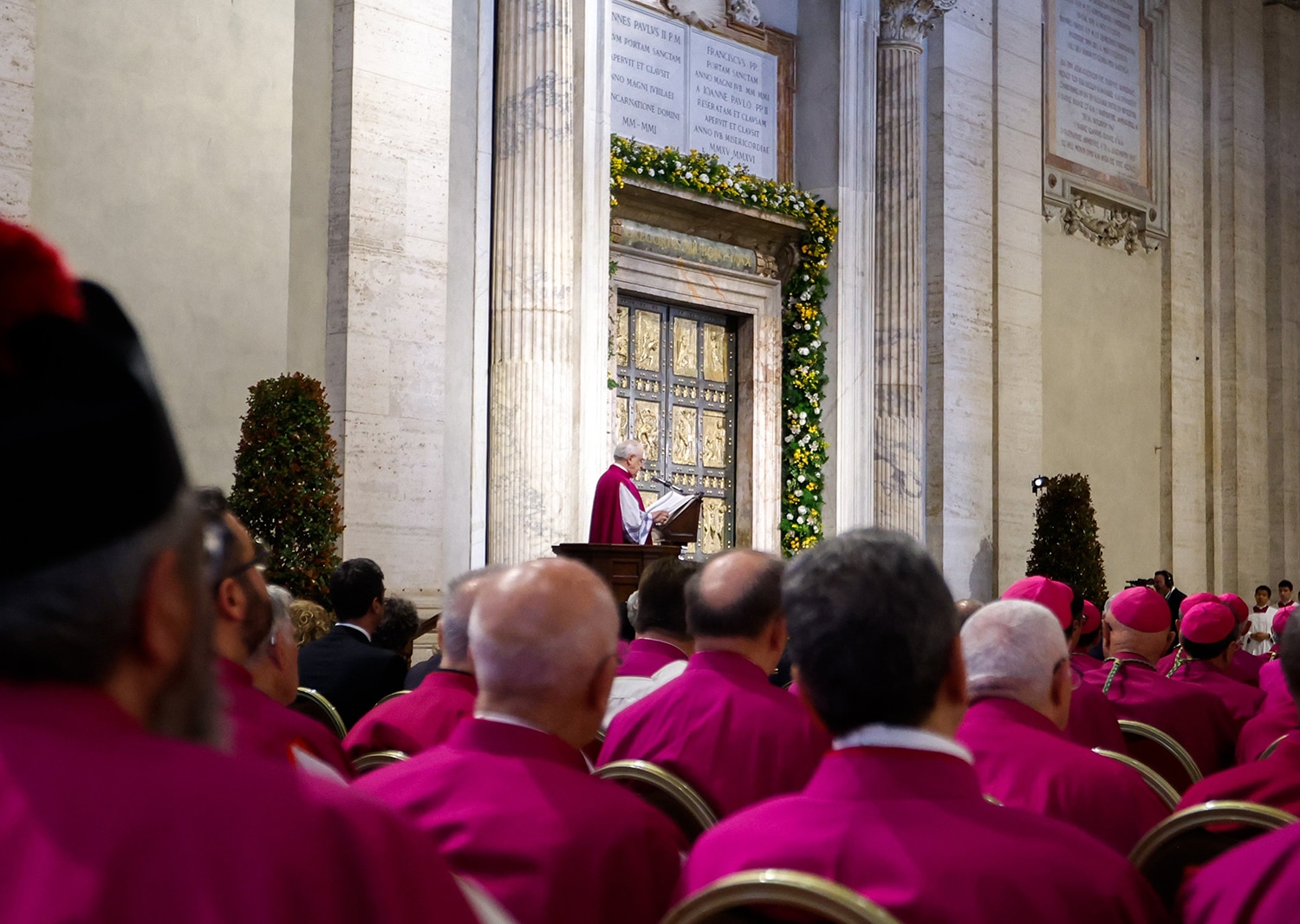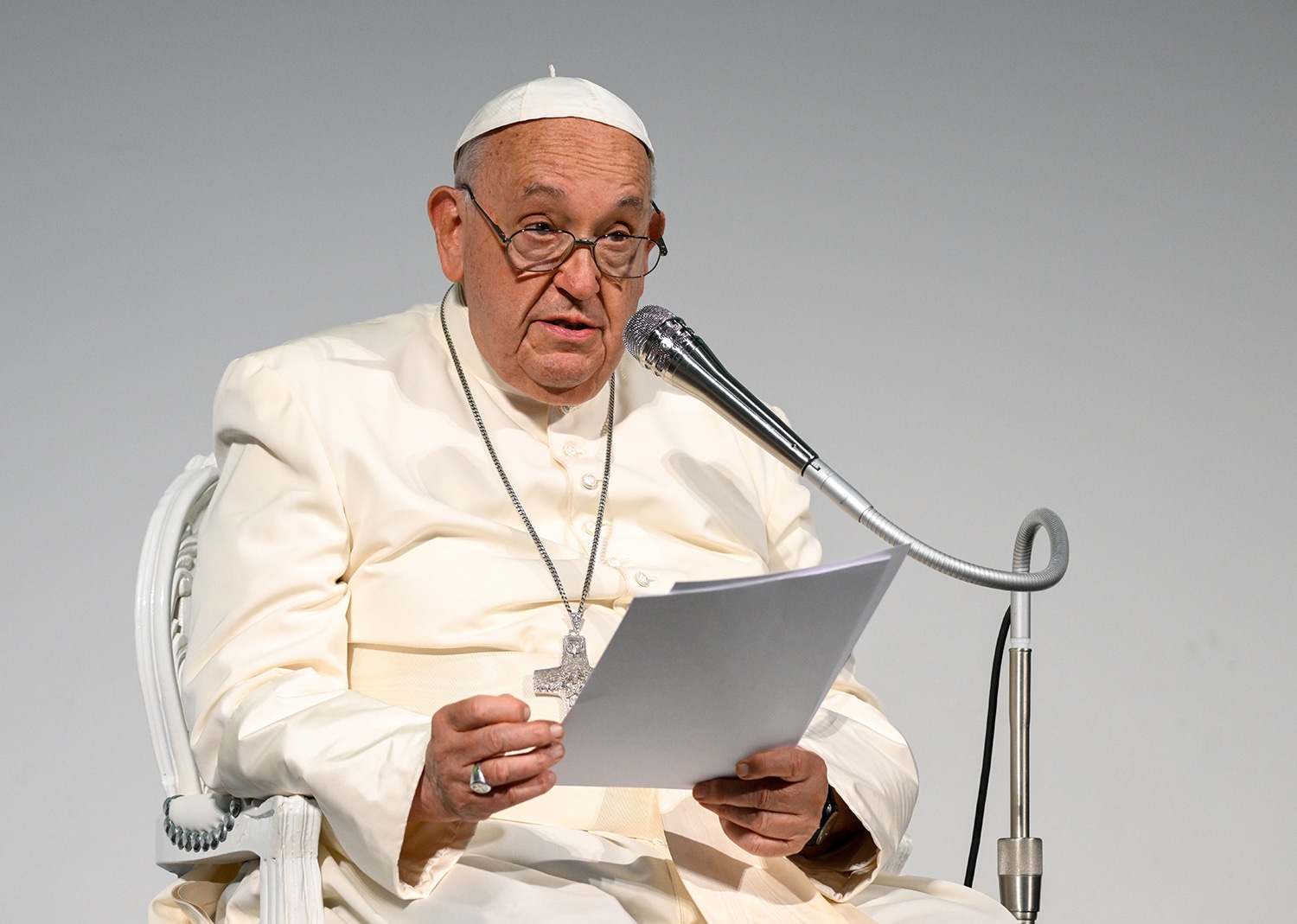The Book of Genesis explains that God created the universe by His word alone, speaking the world into existence. As we read throughout the first chapter of Genesis, “God said, ‘Let there be … ‘” And as God reflected on the six days of creation, He looked upon his work, and “found it very good.”
The Gospel of St. John further explains that the Word through and by which the Father created the world is Christ, Himself. “In the beginning was the Word, and the Word was with God, and the Word was God. He was in the beginning with God. All things came to be through him, and without him nothing came to be” (Jn 1:1-3a). The Greek word St. John uses is “logos,” which can be translated “reason” as well as “word.” By using the word “logos” to explain that the Father created the world by and through the Word, St. John is telling us that the universe is rational and true. Jesus, the eternal Logos through which the world was created, is “the way, the truth, and the life” (Jn 14:6).
From these first chapters of Genesis and the Gospel of John we discern that the world is formed and permeated by the Logos — the very reason and truth of God. This is another way of saying that the world is built upon and sustained by rational communication — the continual utterance of the Divine Word. Where truth is found, the Logos of God is found. Of course, this implies that falsehood is the absence of goodness and reason. Truth is necessary for an authentic, rational human community. Where truth fails, irrationality reigns, and public life is reduced to the imposition of violence by those who control the falsehood.
Orwell’s “1984” and modern relevance
I thought about these aspects of the Christian revelation as I recently re-read George Orwell’s prescient novel, “1984,” which was published 75 years ago, in 1949. It could be argued that Orwell’s fictional predictions of a dystopian future have never been more relevant than they are now, especially his depictions of “Newspeak” and “Doublethink,” both of which are becoming the lingua franca of American political and public life.
With the proliferation of “deep fakes,” artificial intelligence, various ideological falsehoods, and prevaricating politicians, we do well to revisit Orwell’s novel and to take lessons about the necessity of truth-telling and honest communication to sustain rational human communities.
The deception of “Newspeak” and its modern parallels
For example, “Newspeak” in the novel is a spot-on description of how abortion advocates disguise the unjust killing of unborn human beings, by referring to “reproductive justice.” Newspeak also accounts for the mutilation of healthy organs and sterilization of children as “gender affirming care.”
The purpose of “Newspeak,” Orwell explains, is “to provide a medium of expression for the world-view and mental habits proper” to Ingsoc, the ruling political ideology. When Newspeak had been adopted to obfuscate reality, “Oldspeak” — that is, truthfulness — “should be literally unthinkable, at least as far as thought is dependent on words.”
To exert control over all aspects of society, the party replaced truthful words with false ones, and exerted absolute control over their definitions. “This was done … by the invention of new words” and “by eliminating undesirable words and by stripping such words as remained of undesirable meanings.” In other words, Newspeak destroys authentic, rational human community by replacing truth with falsehood, and imposing it by force.
The rise of “Doublethink” in contemporary ideology
Closely related to this destruction of truthful speech is Ingsoc’s notion of “Doublethink”: “to know and not to know, to be conscious of complete truthfulness while telling carefully constructed lies.” Doublethink “is to hold simultaneously two opinions, … knowing them to be contradictory and believing both of them, … to repudiate morality while laying claim to it.”
What better way to describe an ideology, for example, that declares men can become pregnant and women can be outfitted with a man’s reproductive organs? Or simultaneously to profess the mutually contradictory and self-refuting notions that gender is both a “social construct” and an “innate” sense of identity? To declare that sexual physiology is irrelevant to gender, but to insist on amputating sexual organs to conform to gender identity? Doublethink is quickly becoming the prevailing dogma of American public life.
In 1984, the ideology of Ingsoc is built upon the foundation of three slogans: “War is Peace,” “Freedom is Slavery,” “Ignorance is Strength.” Seventy-five years after its publication, and 40 years after its historical setting, 1984 has never been more accurate in its description of the increasing dystopia of American public life. Nor has the novel ever been more relevant as a cautionary tale about the danger of exchanging truth for lies.







